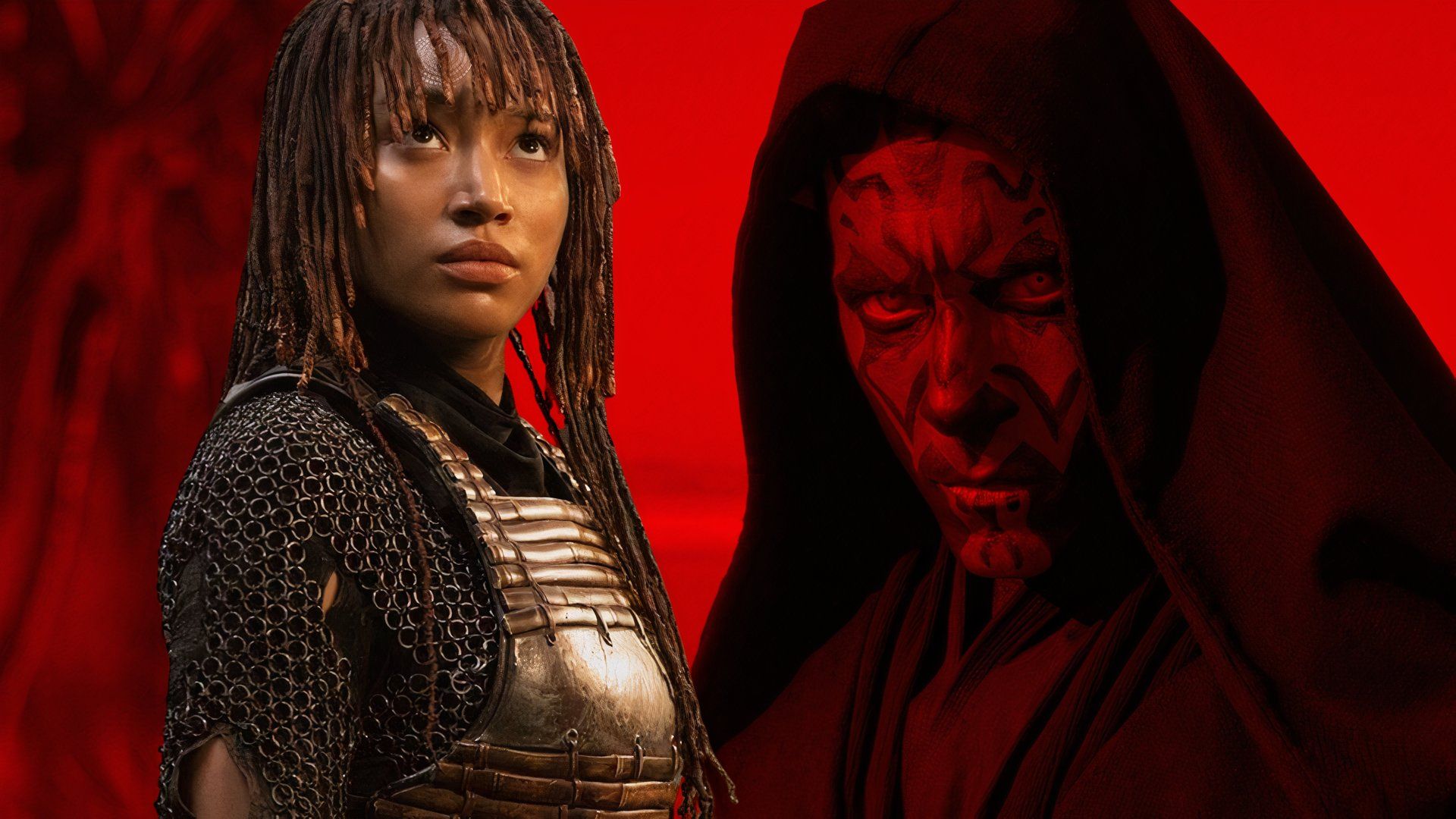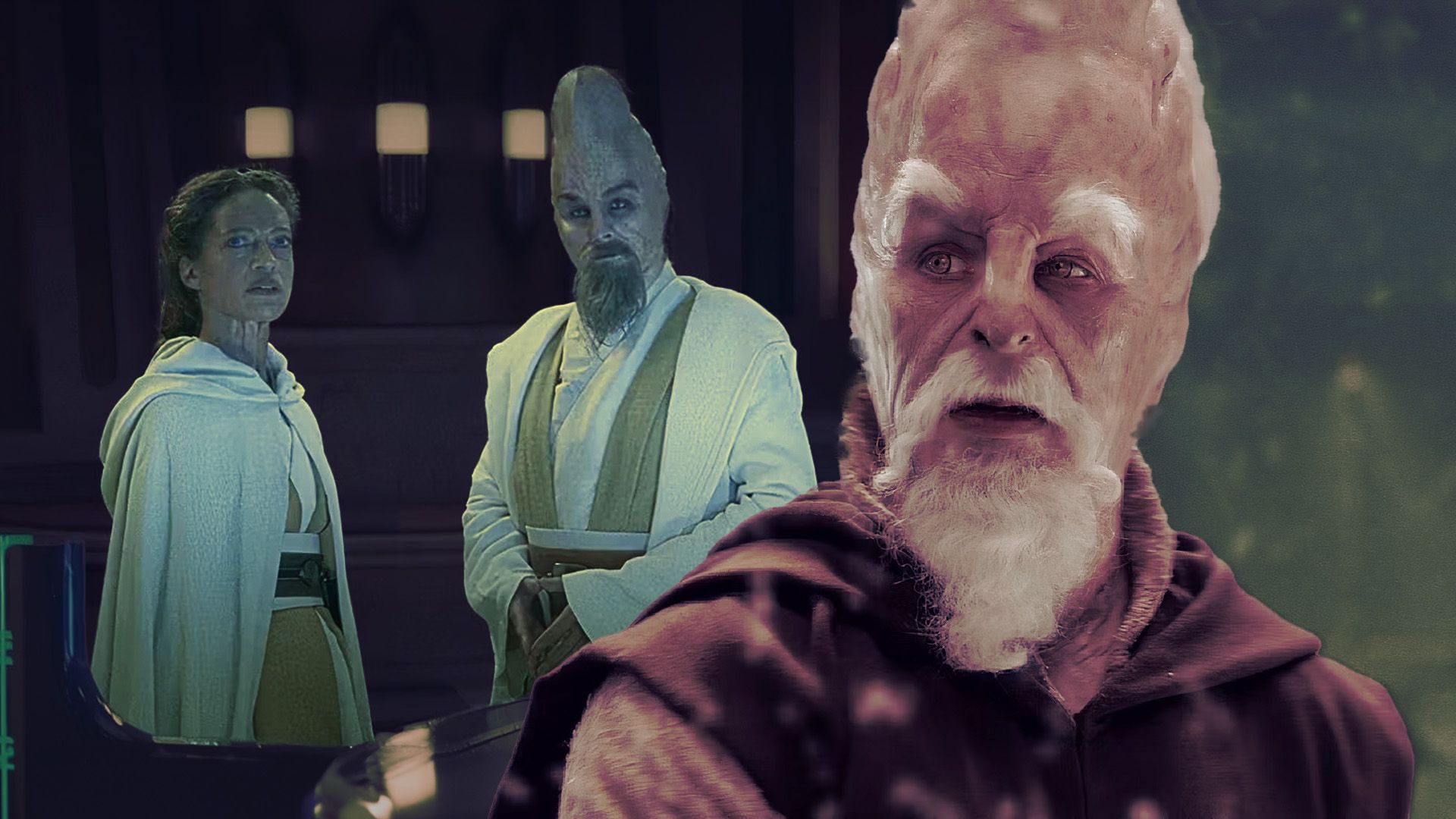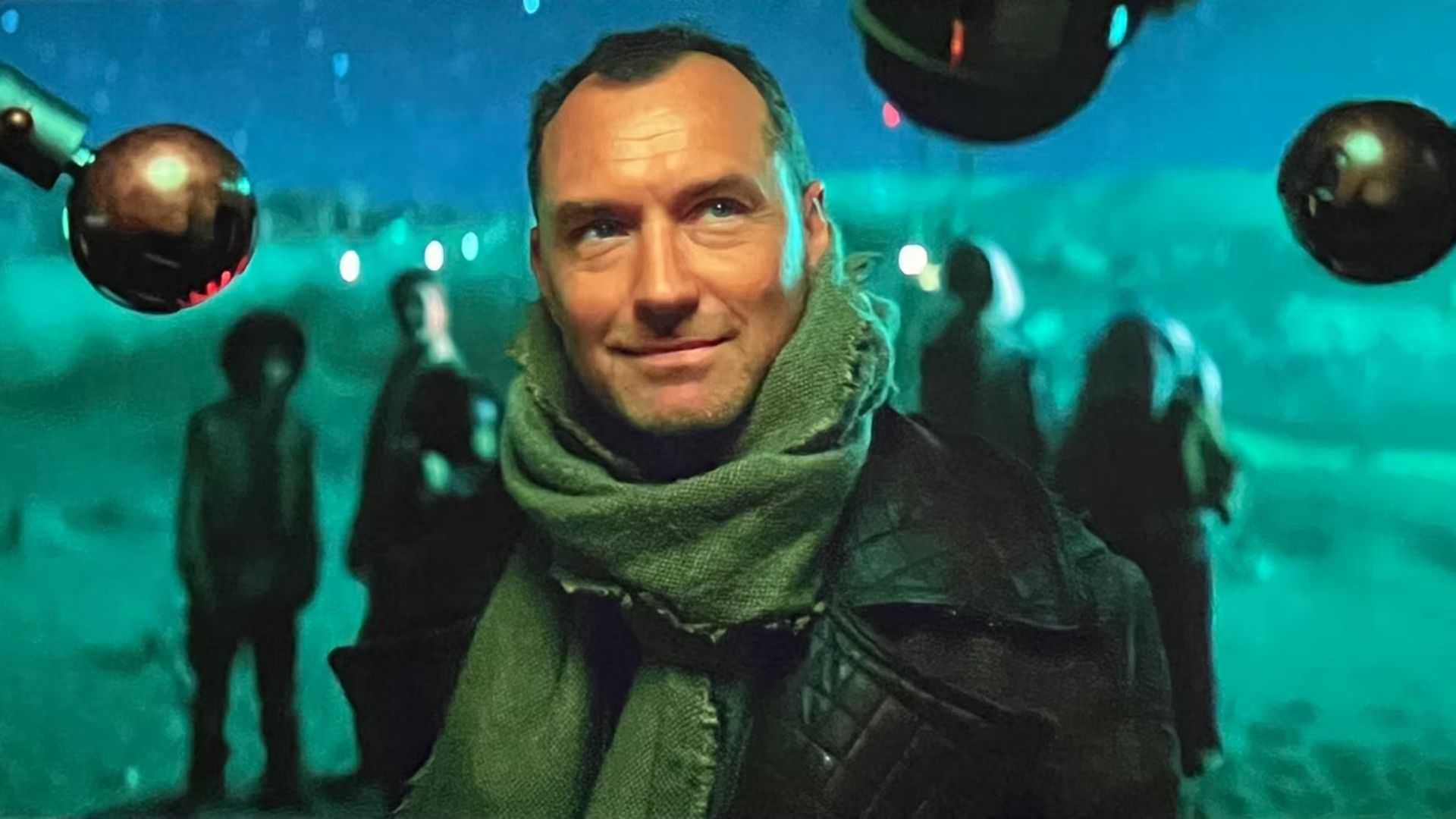Summary
-
The Acolyte
‘s cancelation reveals
Star Wars
‘ fear of new ideas and overreliance on nostalgia. -
Star Wars
must accept that it shouldn’t always appear to everyone and embrace niche fandoms to grow. - Dealing with a divided fanbase,
Star Wars
must address toxic behavior and explore new directions.
On September 19, 2024, the Star Wars fandom felt a disturbance in the force, like the Death Star blowing up Alderaan. The news broke that The Acolyte was not returning for Season 2. While it was framed as a cancelation, it was more like The Book of Boba Fett or Obi-Wan Kenobi, where a second season wasn’t ordered. Still, cancelation is a buzzier word, and unlike those series, The Acolyte ended with a cliffhanger that seemed to set up a second season. This news was a disappointment for many fans. There were others, though, that celebrated the series cancelation. They didn’t just enjoy the series cancelation but mocked those who were upset the series would not be renewed.
While The Acolyte was a Star Wars series with issues, it had potential, and though there was a lot of hate, there was also a passionate fanbase that wanted to see more of it. Yet Disney and Lucasfilm instead decided to cancel it, repeating some of the same mistakes the franchise has made. They have encouraged toxic fans, which in turn has alienated many who do not feel safe in this space anymore. Meanwhile, they are limiting what Star Wars can be, which is a wrong move for a franchise that looks to go on for years.
Star Wars Appears to Be Afraid of New Ideas
A common criticism of Star Wars is its overreliance on nostalgia. The franchise has certainly introduced new characters, like the new cast of the sequel trilogy or The Bad Batch. Still, those also had legacy ties to the greater Star Wars franchise, as the sequel trilogy featured many legacy heroes, while The Bad Batch was a Clone Wars spin-off. Much of the Disney+ era Star Wars series is centered around legacy characters like Boba Fett and Ahsoka.
At the same time, The Mandalorian featured new characters, though ones that were basically “off-brand” versions of famous Star Wars characters. Season 2 brought in legacy characters like Bo-Katan, Boba Fett, Ahsoka Tano, and Luke Skywalker. The series have all also been set during the Skywalker Saga of the franchise, most notably during the Reign of the Empire (Andor, The Bad Batch, Obi-Wan Kenobi) or set after the events of Return of the Jedi (The Mandalorian, Ahsoka, The Book of Boba Fett).
The Acolyte looked to offer something new. It took place 100 years before the events of The Phantom Menace. The Acolyte featured a somewhat controversial cameo by Ki-Adi-Mundi, and in the finale, Yoda and Darth Plagueis were teased, but the series did not rely on them. Instead, the series marketed itself as a new Star Wars show, but it was something different. It was a new cast of characters, new concepts, and a corner of the Star Wars galaxy that had only been shown in books and a Disney Jr. television series.
The Acolyte did not rely on cheap nostalgia to draw in an audience; it looked to do so by being a story on its own terms. While Solo: A Star Wars Story bombing made Lucasfilm afraid to recast fan-favorite characters and instead opt for creepy CGI deep fakes, canceling The Acolyte sets another scary precedent. The franchise will stick to the Skywalker Saga timeline, and a series value can only be determined by how it ties into pre-existing Star Wars characters. While The Skeleton Crew emphasizes new characters, it also connects to The Mandalorian and Ahsoka. Now, the fear that the crossover Star Wars film by Dave Filoni will feature CGI deep fakes of Luke Skywalker, Han Solo, and Princess Leia because it is afraid to stand on its own is a possibility. Hopefully, that doesn’t happen.
Star Wars Needs to Learn It Will Not Be All Things to Everyone
Ever since Star Wars was released in 1977, it has been the biggest movie franchise on the planet. Of the 12 theatrically released films, only four were not the highest-grossing movies at the domestic box office, and that was 2002’s Attack of the Clones, 2008’s The Clone Wars, 2018’s Solo: A Star Wars Story, and 2019’s The Rise of Skywalker. Even then, only The Clone Wars and Solo were not in the top 10. Even on television, The Mandalorian was one of the most talked about television series of 2019 and 2020. Its success kicked off an era of Star Wars Disney+ series that make up an interconnected story. While Andor wasn’t the biggest ratings hit, its critical acclaim and Emmy nominations make it a viable part in Star Wars cultural dominance.
The Acolyte drew good numbers but was still a relatively smaller section of the fanbase. Deadline did reveal that while the series debuted on Nielsen’s Top 10 originals chart in its premiere week at number 7 and climbed the following week to number 6, it dropped out after the third episode and didn’t climb back to the Neilsen top 10 until after the finale, but that isn’t uncommon for streaming series that do weekly releases as some people prefer to binge-watch. While the numbers might not have been The Mandalorian levels, it was clear The Acolyte did have a substantial, passionate fanbase, as seen by the fact that The Strangers helmet sold out within days of going on sale.

Related
How The Acolyte Ties Into The Phantom Menace
The Acolyte finale set up major reveals that tie it closely with The Phantom Menace and the eventual fall of the Jedi Order.
Star Wars has always been the biggest franchise in the world, and because of that, it has never learned that it is okay not to be for everyone and to have corners of its franchise that appeal to a smaller section. A good point of comparison is Marvel Studios, who, apart from Iron Man, didn’t have a breakout smash hit until The Avengers. Yet, they still invested in moderate hits like Thor and Captain America: The First Avenger and saw those brands grow. They understood Ant-Man was never going to equal Avengers: Age of Ultron‘s box office, but still realized the long-term viability of the character and gave him two sequels and two guest appearances in major MCU movies.
Star Wars has not learned this lesson. They are used to being the biggest and most beloved aspect of pop culture, but they have not learned to embrace niche fandoms. The Acolyte might not be for everyone who loves Star Wars, but it can mean a lot to a certain section of the fandom and generate its own lucrative corner of the franchise. The Acolyte, in particular, seemed to generate interest in a female-skewing audience, one that was attracted to the potential dark romance between the character of Qimir and Osha, one that filled the void left following disappointment over the handling of the Kylo Ren and Rey romance. Books based on “Reylo” fan fiction, like Love Hypnosis, have turned into a lucrative money-earner that Disney and Lucasfilm are abandoning because it doesn’t appeal to everyone, but in canceling The Acolyte, they only alienate fans.
Star Wars Must Deal With a Completely Divided Fanbase
Make no mistake about it: Star Wars fandom has had a bullying problem for a long time. Obviously, this is not every Star Wars fan, but a portion of the fanbase seems unable to separate real actors from fictional characters or realize this is just a movie franchise. This is a problem that stretches back to 1999 with the release of The Phantom Menace, where people were cruel to a young child like Jake Lloyd, or the constant harassment that made Ahmed Best contemplate suicide following the massive hate he got for playing Jar Jar Binks. One would think people would step back and adjust their behavior following these revelations, but that wasn’t what happened.
This problem has only gotten worse in the Disney era, as the comments have gotten more racist and sexist. Sequel trilogy actors like John Boyega, Daisy Ridley, and Kelly Marie Tran underwent massive troll campaigns where Ridley and Tran stepped away from social media. When Obi-Wan Kenobi debuted, actress Moses Ingram received plenty of racist comments leveled at her. Obi-Wan actor Ewan McGregor had to make a video telling people who were attacking Ingram online that they were not real Star Wars fans. Despite all of this, Disney and Lucasfilm have done the bare minimum to protect their stars.
It just got worse with The Acolyte. Yes, there are reasons to dislike the series, and many of those points are fair. However, it’s impossible to deny that The Acolyte received a great deal of hate online before anyone saw a single frame of footage just because of the casting choices. Regardless of whether the series was good or not, the same fans who criticized it for “being woke” or “pandering” would not admit to it being wrong because they made hating The Acolyte part of their identity.
Some fans went in wanting to hate The Acolyte. Following news of the series’ cancelation, star Amandla Stenberg’s Instagram post about being happy to be part of Star Wars received vile hate comments. This performer could not express happiness with a show she worked on without people online gloating and celebrating that the series was over. Unlike McGregor for Ingram, nobody at Lucasfilm or Star Wars has defended Stenberg and denounced the behavior. If you don’t believe it, check the comments on any of her recent posts.

Related
The Acolyte Ki-Adi-Mundi Controversy Is Ridiculous
Star Wars fans are upset with Lucasfilm for including a relatively lesser-known Jedi in The Acolyte. Here is the whole story explained.
Much of this can be traced back to Star Wars: The Last Jedi. Despite all the evidence that the movie was a hit, grossing over $1 billion worldwide and becoming the highest-grossing movie at the domestic and worldwide box office in 2017 with an A CinemaScore, the use of target review bombing, according to Wired, made the perception seem that this was a hated entry in the Star Wars franchise, with its biggest crime seemingly pushing the franchise in a new direction. While it is unrealistic to think The Rise of Skywalker was made in response to The Last Jedi‘s reaction, as J.J. Abrams was hired for and developing the movie before it opened, the film and the subsequent Star Wars entries like Luke Skywalker in The Mandalorian can’t help but feel like Lucasfilm trying to beg the audiences that hated The Last Jedi to come back, while ignoring the passionate fans who liked those changes.
Meanwhile, the same thing happened with The Acolyte, as it was review-bombed every week, sometimes before an episode aired, and even the wrong Acolyte. Allowing such behavior and making creative decisions to appease one side of the fanbase sends a signal about who is welcome and listened to. With a fanbase that is this divided, it’s a miracle that common ground has been found in series like The Mandalorian and Andor. For every fan who rage quits Star Wars because of The Acolyte, they also gain a new one as they finally find a piece of Star Wars media that appeals to them. Yet their current strategy may alienate both sides.
Where Does Star Wars Go From Here
It might be dramatic, but Star Wars does feel darker now that The Acolyte was canceled. There is a bit of hopelessness, similar to watching the Empire rise, as some of the cruelest people who have become profitable spreading hatred for Star Wars are celebrating. The Acolyte seemed to mark a new direction for the franchise, and now it looks like that hope is dashed, and the future seems filled with retreads. But Star Wars always has a glimmer of hope.
Yet there are some factors to consider. The biggest is that, despite the optics of canceling The Acolyte, it appears to be part of a larger move on Disney’s part. The Acolyte was greenlit under Bob Chapek as an attempt to boost Disney+ streaming output along with many other Star Wars series. Yet now that Bob Iger is back, his priority seems to be less on expensive Disney+ series and more on films they can profit from instead of the sinking cost of streaming. This is why The Mandalorian, easily Disney+’s most popular Star Wars series and likely their flagship original title, is not returning for Season 4 but instead a feature film titled The Mandalorian & Grogu. In fact, other than Ahsoka, all other Star Wars series seem to be over, so The Acolyte is not alone.

Related
Star Wars: Skeleton Crew Trailer Divides Fans but Jude Law Keeps on Smiling
The first trailer for Star Wars: Skeleton Crew is out, featuring Jude Law in the role of a mysterious Jedi.
There is also the fact that Star Wars is still looking to push the boundaries of its franchise. Skeleton Crew focuses on a new cast of characters and will offer something different from what fans expect from Star Wars. It is a series selling itself not on legacy characters but a new Star Wars series. Meanwhile, a new era of Star Wars films will be explored in James Mangold’s upcoming movie, featuring the first Jedi Knight, a prequel set further in the timeline than anything Star Wars has done before. Meanwhile, it appears that someone at Disney and Lucasfilm is smart enough to realize that the supposed “hatred” for the sequel trilogy and the character of Rey is overblown and not a severe criticism because Daisy Ridley is reprising her role in a new film.
If there is one thing Star Wars fans know, the end is never really the end. These concepts can be revisited in other series, movies, comics, and video games. Despite Solo: A Star Wars Story being a box office bomb, the story of Emilia Clarke’s character Qira continued in comics, books, and even the upcoming video game Star Wars: Outlaws. This certainly gives hope that this will not be the end of Osha, Mae, Qimir, and the rest of the story in The Acolyte.
Disney, Lucasfilm, and Star Wars will hopefully get their act together and learn not to keep making the same mistakes by listening to the hateful side of its fanbase. While these “fans” cruelly celebrate the cancelation of The Acolyte and take joy in the people who were upset by the news, the best thing to remember is that any racist and sexist fans are the minority who are loudly expressing themselves. To quote The Rise of Skywalker, “They win by making you think you’re alone. Remember, there’s more of us.” The Star Wars franchise is streaming on Disney+.



